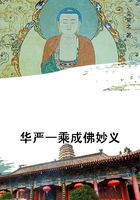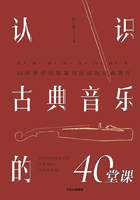But, as men cannot engender new forces, but only unite and direct existing ones, they have no other means of preserving themselves than the formation, by aggregation, of a sum of forces great enough to overcome the resistance.
These they have to bring into play by means of a single motive power, and cause to act in concert.
This sum of forces can arise only where several persons come together:
but, as the force and liberty of each man are the chief instruments of his self-preservation, how can he pledge them without harming his own interests, and neglecting the care he owes to himself? This difficulty, in its bearing on my present subject, may be stated in the following terms:
"The problem is to find a form of association which will defend and protect with the whole common force the person and goods of each associate, and in which each, while uniting himself with all, may still obey himself alone, and remain as free as before." This is the fundamental problem of which the Social Contract provides the solution.
The clauses of this contract are so determined by the nature of the act that the slightest modification would make them vain and ineffective;so that, although they have perhaps never been formally set forth, they are everywhere the same and everywhere tacitly admitted and recognised, until, on the violation of the social compact, each regains his original rights and resumes his natural liberty, while losing the conventional liberty in favour of which he renounced it.
These clauses, properly understood, may be reduced to one ?the total alienation of each associate, together with all his rights, to the whole community; for, in the first place, as each gives himself absolutely, the conditions are the same for all; and, this being so, no one has any interest in making them burdensome to others.
Moreover, the alienation being without reserve, the union is as perfect as it can be, and no associate has anything more to demand: for, if the individuals retained certain rights, as there would be no common superior to decide between them and the public, each, being on one point his own judge, would ask to be so on all; the state of nature would thus continue, and the association would necessarily become inoperative or tyrannical.
Finally, each man, in giving himself to all, gives himself to nobody;and as there is no associate over whom he does not acquire the same right as he yields others over himself, he gains an equivalent for everything he loses, and an increase of force for the preservation of what he has.
If then we discard from the social compact what is not of its essence, we shall find that it reduces itself to the following terms:
"Each of us puts his person and all his power in common under the supreme direction of the general will, and, in our corporate capacity, we receive each member as an indivisible part of the whole."At once, in place of the individual personality of each contracting party, this act of association creates a moral and collective body, composed of as many members as the assembly contains votes, and receiving from this act its unity, its common identity, its life and its will.This public person, so formed by the union of all other persons formerly took the name of city , 4 and now takes that of Republic or body politic ; it is called by its members State when passive.Sovereign when active, and Power when compared with others like itself.Those who are associated in it take collectively the name of people , and severally are called citizens , as sharing in the sovereign power, and subjects , as being under the laws of the State.But these terms are often confused and taken one for another: it is enough to know how to distinguish them when they are being used with precision.7.THE SOVEREIGN T HIS formula shows us that the act of association comprises a mutual undertaking between the public and the individuals, and that each individual, in making a contract, as we may say, with himself, is bound in a double capacity; as a member of the Sovereign he is bound to the individuals, and as a member of the State to the Sovereign.But the maxim of civil right, that no one is bound by undertakings made to himself, does not apply in this case; for there is a great difference between incurring an obligation to yourself and incurring one to a whole of which you form a part.
Attention must further be called to the fact that public deliberation, while competent to bind all the subjects to the Sovereign, because of the two different capacities in which each of them may be regarded, cannot, for the opposite reason, bind the Sovereign to itself; and that it is consequently against the nature of the body politic for the Sovereign to impose on itself a law which it cannot infringe.Being able to regard itself in only one capacity, it is in the position of an individual who makes a contract with himself; and this makes it clear that there neither is nor can be any kind of fundamental law binding on the body of the people ?not even the social contract itself.This does not mean that the body politic cannot enter into undertakings with others, provided the contract is not infringed by them; for in relation to what is external to it, it becomes a simple being, an individual.
But the body politic or the Sovereign, drawing its being wholly from the sanctity of the contract, can never bind itself, even to an outsider, to do anything derogatory to the original act, for instance, to alienate any part of itself, or to submit to another Sovereign.Violation of the act by which it exists would be self-annihilation; and that which is itself nothing can create nothing.















